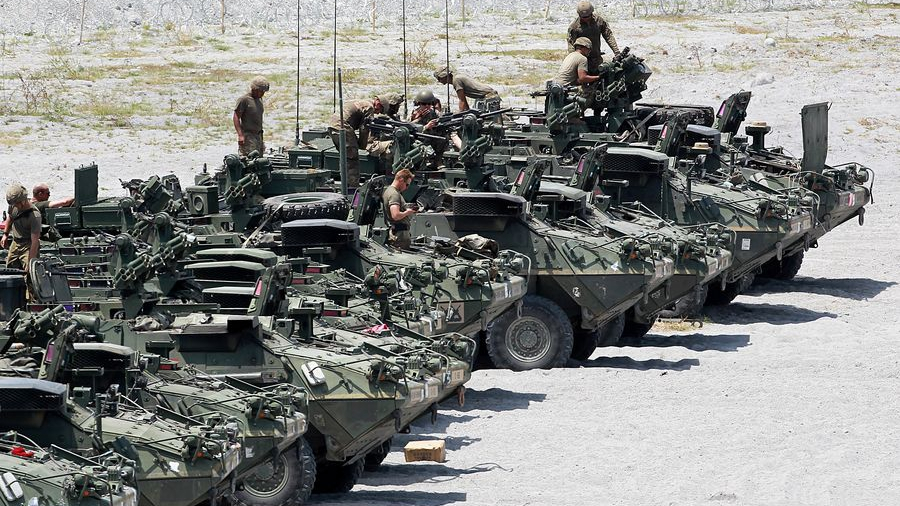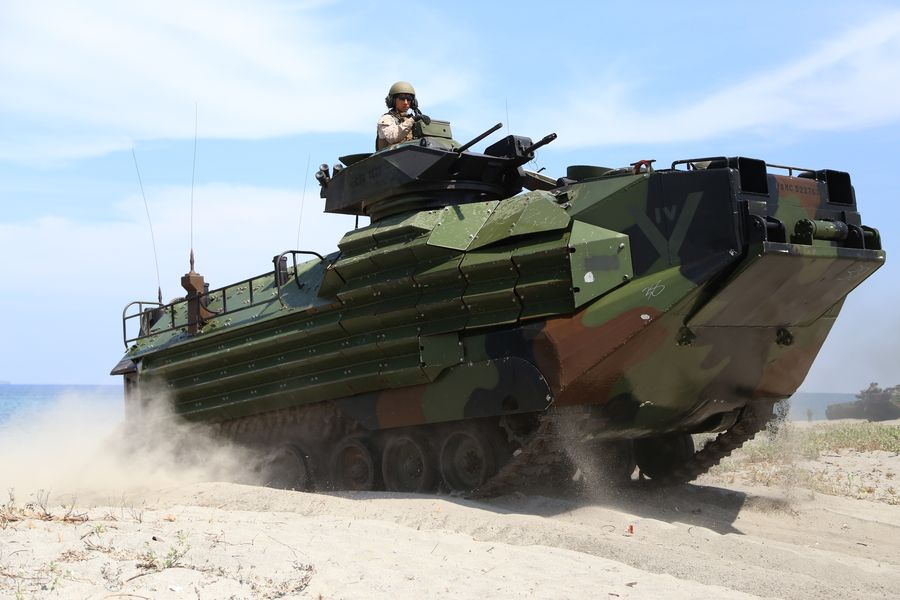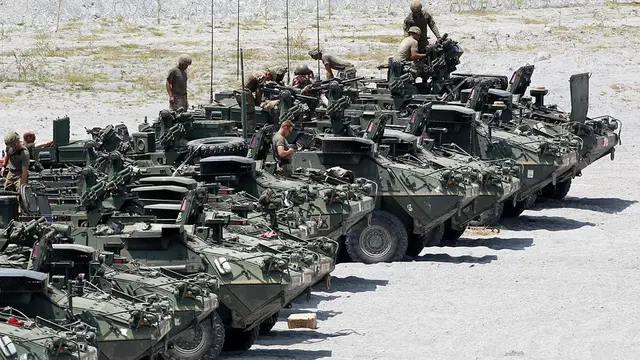
**Editor's note: **Iram Khan is a Pakistan-based commentator on international and commercial affairs. The article reflects the author's opinions, and not necessarily the views of CGTN.
After months of debate and warnings, the Philippines last week terminated a decades-old defense pact with the United States. The Visiting Forces Agreement (VFA), allowing the U.S. military to conduct large scale exercises with the Philippines, will cease to exist if the move by the island nation goes through.
Although the revocation process will commence after the 180-day period sanctioned by the Philippine government, it has seriously affected relations of the two states who were once strong military allies. While scrapping the agreement, President Rodrigo Duterte vented his frustration at Washington which, according to him, had always gotten the better end of the deal.
With the termination, Duterte is aiming to strengthen self-sufficiency in defense and look for other partners for strategic ties. Britain, as per his government's officials, has offered to train with the Philippines and relations with China have significantly improved during his presidency.
Unlike those of his American counterpart, this was not an impulsive decision. He was eyeing to suspend the VFA since 2016 when a U.S. aid agency abruptly announced to withhold funds for poverty alleviation projects. His defense secretary has voiced reservations against the Mutual Defense Treaty and a review of the possible cancellation of the VFA was going on for quite a while.
The Philippines' growing discontent comes after a series of events that are considered interference in its internal affairs. The U.S. government is getting increasingly critical of Duterte's war on drug lords. The country was reeling with the problem of nearly two million drug users when he took office, which he dealt with an iron fist through police and other law enforcement agencies.
To censure his government's approach in the crackdown, the U.S. canceled the visa of Senator Ronald Dela Rosa, a former police chief and longtime ally of Duterte. In addition to that, some U.S. senators have been campaigning for the release of politician Leila de Lima, arrested on charges of receiving money from detained drug dealers.
Responding to the termination of the VFA, the U.S. embassy remarked that the two countries enjoy a warm relationship, deep-rooted in history. A historical fact it failed to mention, however, was that the Philippines is a former American colony of 48 years.

A U.S. Marines assault amphibious vehicle participates in a landing exercise as part of the Philippines-U.S. Balikatan 2019 in Zambales Province, the Philippines, April 11, 2019. /Xinhua Photo
The "warm relationship" includes the colonial period whose negative aspects, according to academics like Professor Aileen Baviera of the University of the Philippines Diliman, were suppressed by American media and public schools. Besides, a large section of the society believes that the colonization strengthened a feudal structure plaguing the economic system to this day.
The "warm relationship" has been marred by military-related tensions as well. In 2005 and 2014, when U.S. Marines were respectively accused of rape and murder of Philippine nationals, they remained in U.S. custody under the VFA. This lopsidedness of the agreement prompted widespread protests over special treatment for U.S. personnel.
However much it may appear to be, the scrapping is not a populist move. President Duterte is at the peak of public approval. In a poll by the independent research institution Social Weather Station (SWS), he received a record-high satisfaction rating from the public for the fourth quarter of 2019. The decision is thus a reflection of the national sentiment that has been, over time, turning against the "one-sided agreement."
Its discontinuation will also be detrimental to a renewed U.S. plan of boosting military presence in the Western Pacific region. U.S. Army Secretary revealed last month that his country will be deploying two specialized task forces there with the capability of information, electronic, cyber, and missile operations. Though he did not specify where exactly they will be deployed.
A heightened U.S. activity around the South China Sea can be a source of confrontation in waters that China has emphatically stated as its sovereign territory. Undertaking exhortations like freedom-of-navigation operations, U.S. Navy has been increasing the risk of an incident that could jeopardize the relative peace the area enjoys.
Defense Secretary Delfin Lorenzana pointed toward the obvious objectives of these operations last year and warned that they could spark a conflict with China. After the Philippines' opting out of security agreements, other regional nations may follow suit, making it difficult for the U.S. to justify such provocations.
In less than two months, this is a rebuke for U.S. forces by a second country. After tensions between the U.S. and Iran recently flared, the Iraqi parliament voted to expel U.S. troops to avoid becoming a battleground of foreign powers. While the Iraqi demand fell on deaf ears, the Philippines' bid is likely to stand its ground.
(If you want to contribute and have specific expertise, please contact us at [email protected])
 简体中文
简体中文

